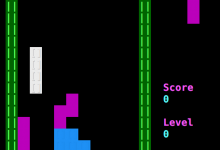1.-z判断
-z string
True if the length of string is zero.
if [ -z $i ] then echo "$i 是空字符串" fi
2.加一个字符串再比较
if [ X$STR = "X" ] then echo "空字符串" fi
3.直接使用变量判断
if [ "$variable" ] then echo "非空" else echo "空" fi
if [ str1 = str2 ] 当两个串有相同内容、长度时为真
if [ str1 != str2 ] 当串str1和str2不等时为真
if [ -n str1 ] 当串的长度大于0时为真(串非空)
if [ -z str1 ] 当串的长度为0时为真(空串)
if [ str1 ] 当串str1为非空时为真
shell 中利用 -n 来判定字符串非空。
错误用法:
ARGS=$*
if [ -n $ARGS ]
then
print “with argument”
fi
print ” without argument”
不管传不传参数,总会进入if里面。
原因:因为不加“”时该if语句等效于if [ -n ],shell 会把它当成if [ str1 ]来处理,-n自然不为空,所以为真。
正确用法:需要在$ARGS上加入双引号,即”$ARGS”.
ARGS=$*
if [ -n “$ARGS” ]
then
print “with argument”
fi
print ” without argument”




 Asynq任务框架
Asynq任务框架 WEB架构
WEB架构 安全监控体系
安全监控体系 集群架构
集群架构




